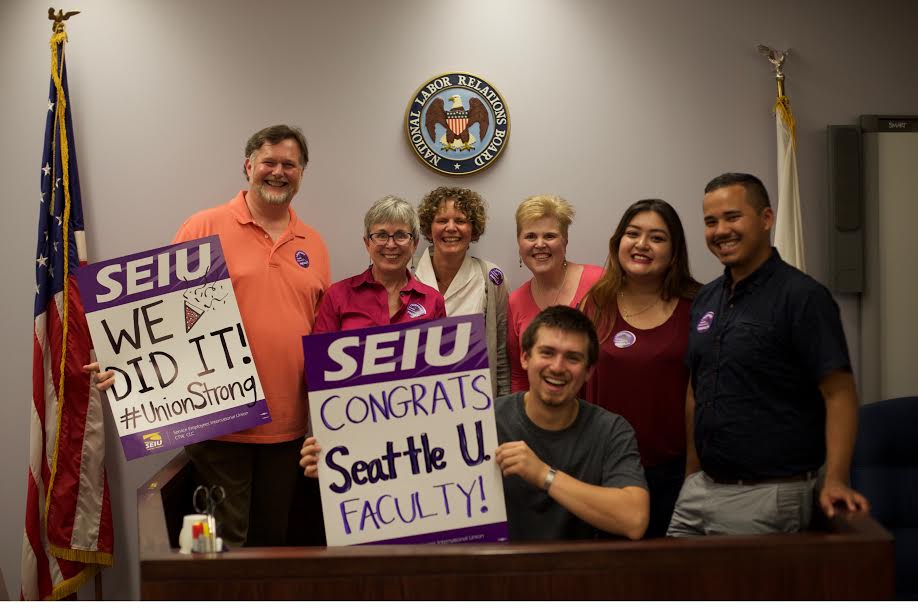Confronting the Economy of Exclusion
Saint Louis University adjunct Antoine Valdez reports here on his experience meeting with other low-wage workers and with Cardinal Rodriguez, a key advisor to Pope Frances.
On Thursday April 30th, 2015 I had the opportunity to attend a conference called “Year of Encounter: Confronting the Economy of Exclusion” in Philadelphia, Pennsylvania. This gathering highlighted the economic struggle low-wage workers face as they try to support their families. Low-wage workers from different sectors representing twenty-one states participated on this event along with various religious groups from all over the country. I shared my story as an adjunct at Saint Louis University, and not only my voice was heard but also I was honored to represent the national adjunct community. I must say that some of my fellow low-wage workers were astonished because for them it was hard to imagine that a college graduate had the same economic challenges as them. Nonetheless, I was embraced kindly because all of them as well as me and my fellow adjuncts: want a voice, higher earnings, job security and stability, medical benefits, and an end to the practices of a system that is deeply flawed, among many others.
The conference had a special guest, Cardinal Óscar Andrés Rodríguez Maradiaga Archbishop of Tegucigalpa, Honduras and Chair of the Council of Cardinals advising Pope Francis. Cardinal Rodríguez Maradiaga is a close advisor to the Pope on economic justice and is facilitating the Pope’s visit to the United States this upcoming September.
The message of the Cardinal stressed the need of the Church to actively participate in the community to alleviate the economic discrepancies that affect all low-wage workers not only in this country but overseas as well. As I heard him speak Cardinal Rodríguez Maradiaga showed that he is a man of action, he said, “when I ask my fellow religious leaders how many people in need live our community, I do not want to hear a number, rather I want know how many people in need have they helped”. His words motivated me due to the fact that there are other low-wage workers in a much more complicated situation than the one I am in, he motivated me to seek change, to stand up for what I believe is right, to never give up, and most importantly to lend a helping hand and to be compassionate about the misfortune of others.
In addition, I had the pleasure and the fortune to meet Cardinal Rodríguez Maradiaga personally. As I approached his table and waited for my turn to speak with him, my main concern was the manner in which I needed to talk to him. Finally the moment came and he addressed me first and to my surprise he shook my hand, as I got down to my knees. As of today I do not know why I knelled down. I told him that I was representing the adjunct movement and that I was affiliated to Saint Louis University.
This experience was really humbling not only as a Catholic but as a person because he took the time out of his busy schedule to listen to my problems and most significantly he offered me his help without any hesitation. He asked me to give him the contact information of Dr. Fred P. Pestello, the current president of Saint Louis University. According to his words he will email Dr. Pestello directly asking him to support the adjunct movement at Saint Louis University. The minutes I spent talking with the Cardinal gave me hope as we both parted ways.
As the day ended as I was ready to board a plane back to Saint Louis I thought about what I had experienced. I thought about the people I met, their stories, about our future challenges, and about the fact that there are good people from all walks of life willing to help low-wage workers. Most notably Cardinal Rodríguez Maradiaga on his upcoming trip to Rome will speak directly to Pope Francis about the economic injustice in this country and what role should the Church play in order to help alleviate this world wide issue that affects a great number of people.
Next Article:
Lesley University Adjunct Faculty Ratify First Union Contract »
